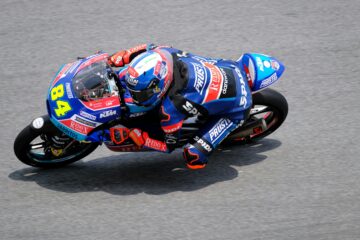On April 21, 2015 Canadian avant-garde circus operator, Cirque du Soleil, announced an agreement to sell a majority stake of its business to a private equity consortium led by TPG Capital Management, also including Fosun Capital group, Caisse de dépôt et placement du Québec and a Québec businessman Mitch Garber. The deal’s worth is estimated at 1.5bn Canadian dollars, but the exact breakdown of each buyer’s share in the deal was not laid out in the agreement. The transaction is subject to customary closing conditions, and is expected to close in September 2015.
About Cirque du Soleil
Founded in 1984 by Guy Laliberte and a group of young street performers, Cirque du Soleil steadily grew to become the largest theatrical producer in the world. Today, the company employs close to 5,000 people worldwide; 1,500 of which are located in the Montreal international headquarters. Cirque is recognized all over the world for its high-quality, creative entertainment consisting of dance, circus and opera elements. Such unique performances attracted around 15 million people in 2014 alone despite the premium prices charged by the company. Cirque is also famous for reinventing the business model of the entire circus industry. Unlike traditional circus shows, the company does not include animal acts, which allowed it to cut operational costs by a great margin. The bulk of the company’s earnings are drawn from ticket sales, through sponsor partners and by means of concession sales.
Financial troubles
In recent years Cirque has had a tough time dealing with increased competition and the global economic downturn. The latter especially affected the company due to procyclical nature of the high-end entertainment industry. Indeed, the company’s European division, led by an offshore company Gaia Luxembourg, recorded an operating loss of $9.9m in 2013, down $3.3m from the year before. Its losses coincided with a reduction in costs and revenue which came as a result of downsizing of the number of shows, from 600 in 2012 to 400 in 2013. Ticket sales represented the largest revenue contributor with $43.6m, but even those have recorded a 39% fall from the previous year. Although the company did not publish its 2014 financial figures, it is reasonable to assume that the negative trend persisted.
Cirque du Soleil’s 10 permanent shows are believed to make around $70m each in annual revenue with another five tours outside Europe generating $60m combined. Other income, including sponsorship from brands such as printer company Xerox and delivery service DHL, made Cirque’s total annual revenue $850m in 2013. Again, this was a decline compared to $1bn earned the year before. With the European business in decline and less than 10% of revenues generated in Canada, Cirque has become increasingly reliant on earnings coming from the suite of shows performed in Las Vegas and Asia. In Las Vegas, the company has entered into several long-term contracts with MGM Resorts International and no changes are planned for venues in hotels operated by Caesars Entertainment Corp, which is already controlled by TPG.
The buyout details
Following the $1.5bn acquisition of the majority stake, TPG Capital is planning to leverage its expertise to help fuel growth and take Cirque du Soleil into new markets. Fosun, upon acquiring a minority stake via a fund under its management, will focus on the company’s expansion in China. Caisse de dépôt et placement du Québec will also acquire a minority interest in the company, primarily as a defense mechanism against potential regulatory setbacks. Mitch Garber will become Chairman, adding his valuable expertise and a strong Montréal-community presence to the board of directors. The company’s founder Guy Laliberté, who previously owned 90% of the company, will maintain a small stake in the firm and will keep directing the creative side of Cirque. Daniel Lamarre will remain the company’s CEO.
The deal will most likely draw the attention of the regulatory authority in Quebec, where Cirque is based and where it is a major employer. In order to prevent problems of this kind, TPG decided to include in the consortium Mr. Garber as well as Caisse de dépôt et placement du Québec, the provincial pension and investment fund, as minority partners. Interestingly, the deal will also include guarantees that Montreal will remain the creative and management international headquarters for the company. Moreover, the new owners committed to preserve Cirque’s Québécois footprint as well as to further enhance its bond with the local community. Such provisions are likely to ease any possible scrutiny coming from regulators.
Due to lacklustre financial performance and little interest from Mr. Laliberte’s children to continue running the business as “second generation” entrepreneurs, Cirque started looking for possible investors already in December 2014. Goldman Sachs was hired to act as a strategic advisor in order to help the company’s effort in finding the right strategic partner. In February, TPG and the Carlyle group first approached the company which was soon followed by an offer from UK buyout funds BC Partners, CVC Capital Partners Limited and Permira Advisers Ltd. A final agreement and end to the saga was finally reached with TPG’s consortium agreement on April 21, 2015. Goldman Sachs acted as the exclusive financial advisor to Cirque du Soleil throughout the deal.
Rise of “Western” entertainment in Asia?
Cirque du Soleil’s acquisition is particularly interesting because of many parallels it shares with the acquisition of Club Med last March by Gaillon invest II, a special purpose vehicle of Fosun. The deal represents one of the many ways in which the Chinese fund is trying to tap into the growth of Asian upper and middle classes.
Despite attempts by the Chinese Communist party to curtail luxury spending, desire for “western” luxury entertainment and vacationing has continued to increase at a brisk pace. With a financially strong partner in China, Cirque du Soleil’s goal will likely be to rapidly expand in the region, and bring their showmanship expertise to the table in a competitive and profitable manner. TPG’s Internet and media investments, including Creative Artists Agency (CAA), Lynda.com, RentPath, STX Entertainment and Univision, amongst others, will likely also be leveraged to the benefit of Cirque. Indeed, in the words of Guo Guangchang, Chairman of Fosun: “Building on top of this model, we have an objective to become one of the global leaders in businesses driven by lifestyle needs, which are quickly taking root in China.”
Although an increasing demand in Asia provides for a clear rationale behind the buyout, it is not guaranteed that the endeavor will be successful. Cultural differences and scaling issues are possible barriers to an effective transplant of the French-Canadian model. In addition, regulatory barriers may arise from both sides. From a Canadian perspective, the concessions made while arranging the sale, such as the headquarters remaining in Canada, may be an indication of future trouble that could arise from the foreign ownership of strong cultural elements in Quebec. From a Chinese perspective, the government may stem expansion of foreign cultural influences in favor of protecting the domestic entertainment industry; in part due to historical importance of spectacles in Chinese society.
Despite these possible points of resistance, the sale has a strong rationale behind it; it would not be a surprise if more deals of a similar vein are announced in the near future.
[edmc id= 2642]Download as PDF[/edmc]



0 Comments